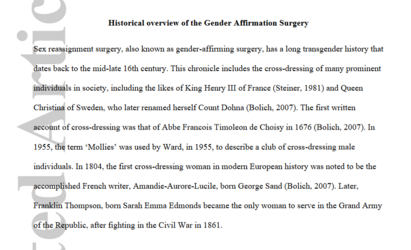I also thought that it was taboo to force modern ideas into history?
Generally speaking, it is. But you can find all sorts of instances of hypocrisy slipping through the net, even amongst academic historians. My example before, about the term "queer", is my personal bugbear when it comes to that. That being said, I haven't run into any occasions of eunuchs being classified as queer, if you do have an example I would absolutely love to read it so I can laugh at it.
There's a very commonly used phrase you can find in historical articles and books in the English speaking world: "The past is a foreign country; they do things differently there." It's somewhat debated and has been played around with to make various different points, but it's not a bad starting point for anyone who wants to start examining history in a more critical fashion. In essence, it's all about bearing in mind that, on a fundamental level, you cannot understand what it was like a hundred years ago, much less a thousand. Hell, you can barely understand what it was like a decade ago, not as if you were living in the moment. You might have been alive and sentient, but it's entirely possible you'd be transplanting your own thoughts and feelings of today on what you were doing that long ago, putting meaning where there wasn't, or spinning an entirely different series of events.
Same thing when you have the "queers" (e.g. mentally ill men in dresses or otherwise entirely heterosexual women who want to feel special) looking back in time and confirming their own biases. This predominant figure was trans, this one was gay, this one was super duper queer. They don't care about anything beyond that, no historical nuance or theory and if you tell them they're wrong or misguided, you're some flavour of -phobe.
Even when, say, a woman says "I wish I was a man" in a genuine record of hers, it simply doesn't have the same connotations it does now, something that I could've told you when I was <12 years old with a limited understanding of history.
Forgive the length of this post, but I decided to take a peek at the paper linked earlier after I'd written this and didn't want to double post and I find the 16th century argument so incredibly laughable. This is the extent of their proof in this regard, it's barely an argument. They're talking about historical fucking crossdressers, not even eunuchs, which has nothing to do with gender affirmation surgery. If you can't even tell if two people in history had sex, you certainly can't diagnose them with what we understand today as gender dysphoria. It's generally considered taboo to try and suggest what mental illnesses a historical figure might have had, yet here crossdressing is being used to provide legitimacy for butchering people's genitals in the modern day, from eras where methods of dress were much more strictly gendered.





